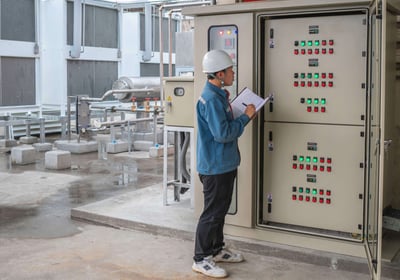Asset Management is a broad term that can be applied in numerous contexts, from facilities to finance. In a Manufacturing context, it refers to ensuring that tangible assets, including buildings, equipment, tools and so on, are properly operated and maintained throughout their whole life cycles.
Deciding whether to repair or replace broken machinery is one of the primary tasks of a factory asset manager. In addition to baseline cost comparisons, there are several questions to be addressed. These include:
- What is the average lifespan of machines in this class?
- What is the value of the machine, based on its age and repair history?
- How long will it take to repair the machine?
- How will productivity be affected if the machine is taken offline for repair?
- Can the machine continue to be operated, albeit less efficiently, in its current state?
- What additional maintenance costs can be anticipated during the remainder of the machine’s life?
Other factors may pre-empt these considerations, such as safety issues that clearly indicate the necessity of an immediate shutdown. In the case of critical equipment shutdown, an asset manager may be forced to choose the quickest method to get the plant back up and running — even if it means incurring greater cost.
Cost, moreover, is a complex variable. While a company might resist its spending by postponing costly repairs, over time the hidden costs of lost efficiency and productivity may greatly outweigh any immediate savings. On the other hand, while a new machine may promise maximum efficiency, it will likely also present hidden costs. These include fees for installation, inspection and certification; disposal of old equipment and remediation of hazardous materials; and earmarking time and resources for employee training in operations and safety.
In addition, machine warranties should be factored in when comparing costs between repair and replacement. Although the cost of a new machine may be significantly higher than the cost of repair, the prospect of free maintenance for a set period may balance out that difference. Replacement with a newer model machine may also afford desirable capabilities outside the realm of the older model’s specifications.
There are indeed many factors to consider, and the decision is rarely clear-cut. One middle-ground solution lies in services such as Radwell International, an award-winning industrial automation repair provider and supplier of new and surplus manufacturing equipment. Radwell gives customers savings of up to 60% by repairing their parts and offers a two-year warranty on all repairs. Radwell also buy unwanted equipment offering free collection of unwanted PLCs, HMIs, Servo Motors etc! 










